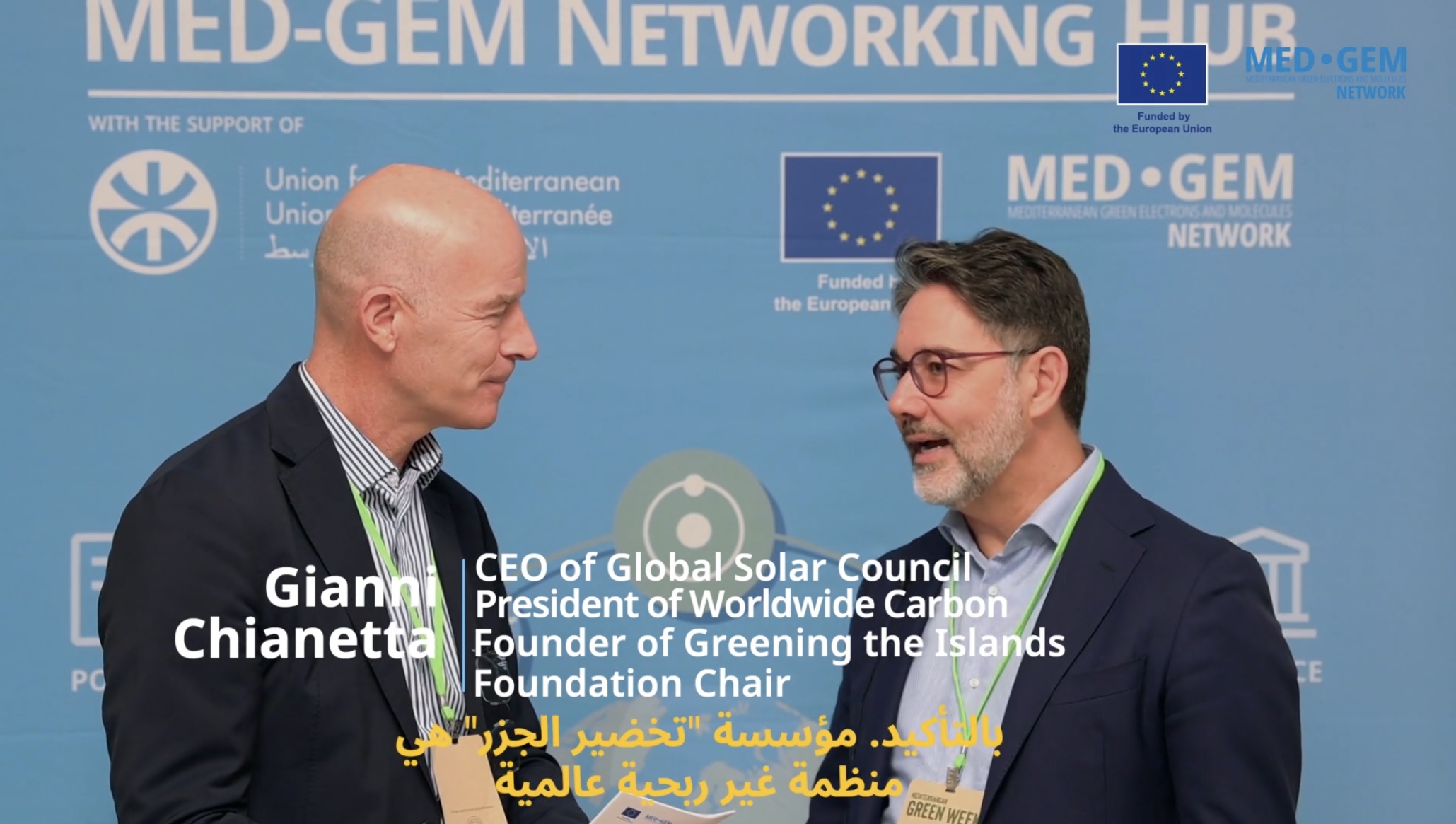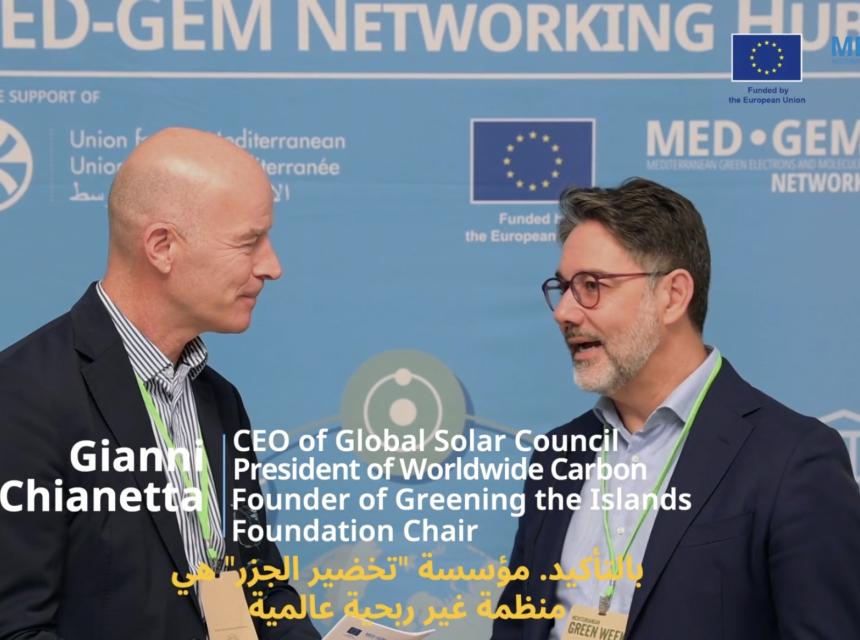Greening the islands & Green Hydrogen: Bridging the Mediterranean Divide
As the world intensifies its efforts to combat climate change and transition to cleaner energy, the Mediterranean region stands at a crucial juncture. The first Mediterranean Green Week in Istanbul, spearheaded by the Union for the Mediterranean and the OECD, spotlighted the region's burgeoning role in this transformation. Frank Wouters, director of MED-GEM, orchestrated dialogues with key stakeholders from both shores of the Mediterranean, delving into the potential of green hydrogen, a pivotal component in the renewable energy arsenal.

Islands as Laboratories for Renewable Energy
In one such conversation, Gianni Chianetta, director of the Greening the Islands Foundation, shared insights on the initiatives undertaken by his organization. The Foundation supports islands worldwide in their journey towards sustainable energy transitions. With a focus on the Mediterranean, Chianetta highlighted the potential of islands as laboratories for renewable energy solutions. "Islands like Malta and Cyprus," he explained, "are uniquely positioned to spearhead ambitious renewable energy targets without the colonial undertones that often accompany larger, mainland projects."
Clustering Projects for Financial Viability
The Greening the Islands Foundation has launched a task force in the Mediterranean, aiming to create roadmaps for renewable energy deployment and foster project pipelines, including innovative solutions like floating offshore wind and solar projects. The objective is to cluster these island initiatives to attract financing and drive sustainable development, which could serve as blueprints for broader applications in the Mediterranean and beyond.
Diverse Renewable Technologies for Sustainable Growth
Chianetta also emphasized the importance of using diverse renewable technologies, from solar and wind to wave energy and geothermal, tailored to the unique conditions of each island. This approach not only maximizes energy generation but also demonstrates the feasibility of achieving significant renewable energy milestones, such as the ambitious one-terawatt goal by 2030, as envisioned by the Global Alliance at COP.
Enhancing EU-Mediterranean Cooperation
When discussing the broader Mediterranean context, Wouters posed a critical question: how can cooperation between the European Union and Southern Mediterranean countries be enhanced to foster renewable electricity and hydrogen projects? Chianetta suggested leveraging multistakeholder networks to coordinate efforts and build synergies, avoiding duplication and maximizing the impact of investments and initiatives.
Aligning Networks for Synergy
The conversation underscored the necessity of collaboration across borders and sectors to address climate change and energy transition challenges. Both Wouters and Chianetta agreed on the value of aligning networks like MED-GEM and the Greening the Islands Foundation to amplify efforts and ensure comprehensive, cohesive action.
Pioneering Renewable Energy in the Mediterranean
As these dialogues progress, the Mediterranean's role as a nexus for renewable energy innovation and cooperation becomes increasingly clear. With initiatives like those discussed by Chianetta, the region can set a precedent for sustainable energy solutions that not only meet local needs but also contribute to global climate goals. The islands' experiences and successes will be crucial lessons for other regions aiming to transition to a sustainable, green economy.
A Path Forward for Mediterranean Collaboration
By fostering partnerships, leveraging diverse renewable technologies, and utilizing the unique potential of the Mediterranean islands, stakeholders can turn the region into a beacon of renewable energy progress and cooperation. As Wouters aptly concluded, "We must ensure that our efforts are synergistic, maximizing our impact and driving forward the energy transition for the benefit of all Mediterranean shores."

